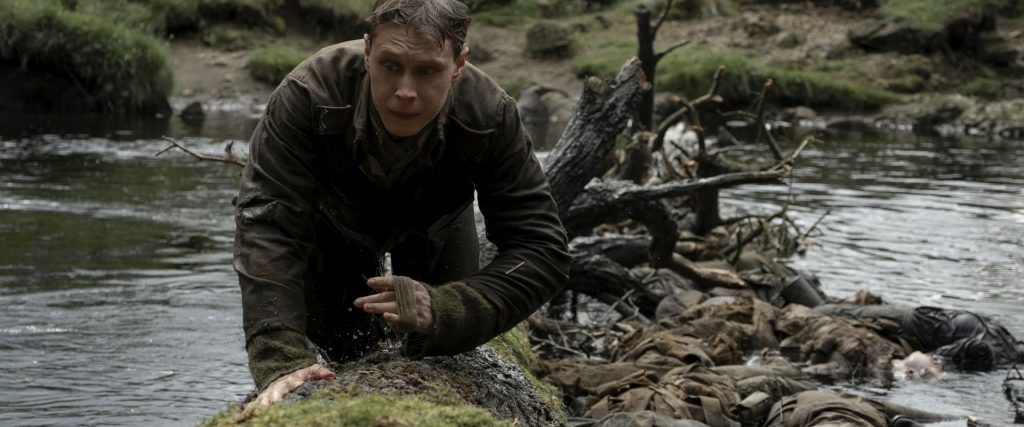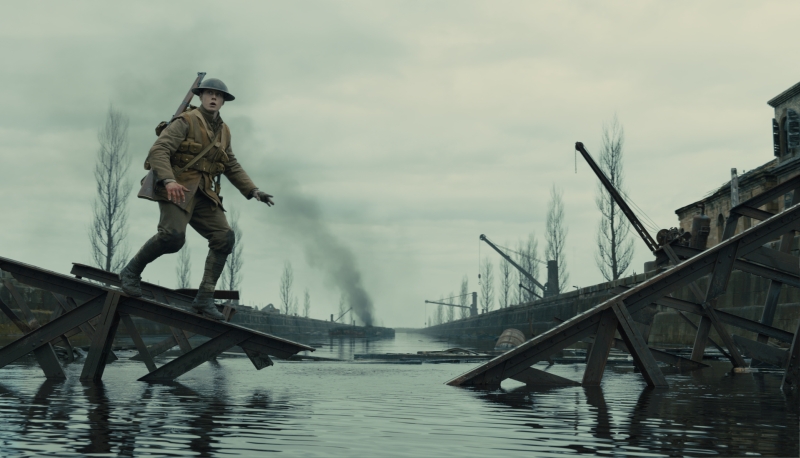For Western Europe, World War I was such a traumatic experience that it was remembered as the Great War. The first use of chemical weapons at Neuve-Chapelle (October 1914), the final break-up of the war of honor, in which the conflict was settled according to strictly defined rules of the battlefield, a hecatomba of people made to the gods of war, an absolute slaughter carried out with machine guns, bombs and fear. Trenches, diseases, dirt, dog-sized rats, lice and other parasites, trauma. And above all – months and months of waiting.
Historical and war cinema have its own rules. One history teacher once told me that he did not like this kind of movies because it uses facts – if it refers to them at all – to build emotions. As a result, he either ends up as veiled national propaganda or as an imaginative play – maybe effective, but certainly unacceptable for the historian.

This is what the latest Sam Mendes’ film – nominated for the Academy Awards in 10 categories – is about. Mendes starts well, trying to portray the experience of war, the threat of waiting for conflict resolution and life in the trenches. What’s more, it uses a monumental mastershot extended to the length of the entire film. But the picture, which allowed to hope for a work that could be a visual equivalent of the famous study by Modris Eksteins (Rites of Spring: The Great War and the Birth of the Modern Age), ends very quickly – with the heroes leaving the trenches.
Mendes quickly forgets that the real sensation was just in the earth, in the crowds and fevers of the Great War – war is not an adventure game (even if grim and scary). 1917 tells the story of two soldiers sent from trenches with a special mission – they are to provide a message that may weigh on the lives of many Allied soldiers whose planned attack on the enemy leads straight into a trap.
The charismatic image of claustrophobic trenches (although it should be noted that they were shot too calmly – by the pedantic eye of a high-class camera) gives way to a buddy thriller. A few cheap, loud jump scares effectively turn immersion into a clownish inter-genre show (war movie, action movie, thriller, elements of horror, escape cinema and road movie), a simple cliché. And as soon as the heroes come out into the open field, 1917 begins to resemble a computer game based on dexterity, stealth and spectacular escapes than bloody, brutal poetry of death and persistence in the conviction of the inevitability of the fate weighing on an ordinary soldier.

I do not want to came out as the ungrateful, mutton-headed critic who can only complain. In its category – of a movie which intention is to attract the attention of the public and entertain – 1917 presents itself well. The problem is that Mendes’ work could well draw material from the memories of those who survived the trenches experience, instead of looking for rapid action where there is tension in covering the head in the ground, next to the corpses. Or it could have been the other way around – Mendes might as well have had a vision of a purely fictional world wrapped in a nightmare of war, instead of looking for references to experience that is blurred by modern effects and film tricks.
And yet, it would be enough to reach for the Rites of Spring, for the clash of two civilizations: one, having the deadly momentum and introducing modernity at the expense of human lives and the other, which had to abandon innocent naivety to be able to continue to be part of a world that will never be the same again.
Wouldn’t it be interesting to see two rivals – strained like strings, balancing between life and death – collide their values among trenches, diseases, dirt and blood, and, despite the ritual of war, being able to find a common language in the ritual of life[1]?
World War I in the film is
still an unfulfilled topic. It turns out that the very idea of
the brilliant form does not meet all expectations of giving back the past due
attention. It’s hard
to say whose fault it is. Is it the fault of memories that in the collective
consciousness are starting to look like pictures from war cinema, or maybe the
cinema itself – according to my teacher colleague – which too much likes to
build stories on emotions?
[1] I am referring to the famous “Christmas truce” of 1914, recalled by Eksteins – during which soldiers on the Western Front abandoned the fight to indulge in a joint celebration.






